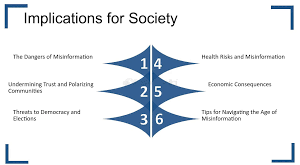GENOMICS
Understanding Genomics: The Future of Drugs and Past
Introduction
Genomics-the study of an organism’s entire set of DNA, including all its genes-is revolutionizing the sciences of biology and medicine. With technological improvements in particular with regard to sequencing methods,
genomics is now a versatile tool through which researchers and healthcare providers can learn about genetic differences and how they can impact one’s health and disease. This article finds the principles of genomics, its packages, and the ethical considerations accompanying this unexpectedly advancing field.
Basics of Genomics
Genomics primarily involves the examination of genomes-the entirety of genetic material in an organism. A genome is comprised of millions of base pairs of DNA, which carry the information needed to grow, develop, and function. Genomics comprises many foundational areas, including:
1. Sequencing:
The task of identifying the true order of nucleotides in a DNA molecule. With advances in NGS technologies, this can now be done more rapidly and at much lower expense than was possible heretofore, so genomics research is now possible for thousands of scientists operating at scales from tens to tens of thousands.
2. Mapping:
The task of identifying where genes and genetic markers are located on chromosomes. This facilitates better understandings of gene behavior and regulation.
3 . Functional Genomics:
Studying the function of genes and their interactions, including how they contribute to trends and susceptibility to disorder.
4 . Comparative Genomics:
Comparison of the genomes of different organisms to identify conserved genes and evolutionary relationships.
Genomics also extends beyond DNA to include RNA and protein evaluation, that provides a more powerful view of organic procedures.
packages of Genomics
1. medicine
One of the biggest promises of genetic packages is found within the realm of personalization treatment, in which treatments are tailored to a patient’s unique genetic makeup. This is possible because,
for example, by studying a patient’s genome, a health care professional can determine genetic predilections toward illness, drug responses, and other potential side effects.
A. Disease prevention and diagnosis
Genomic information can help are expecting the chance of growing sure illnesses. for instance, mutations in BRCA1 and BRCA2 genes significantly boom the threat of breast and ovarian cancers.
Genetic testing for those mutations permits for proactive measures, which includes accelerated surveillance or preventive surgical procedure.
b. Centered therapies
Genomics is being used in the treatment of cancer to tailor therapy plans based on specific genetic alterations in cancer. as an example, drugs like trastuzumab or Herceptin are designed to target the HER2 protein, overexpressed due to genetic mutations in some breast cancers.
Thus, the treatment protocol becomes much more effective and with less chance of untoward outcomes than standard chemotherapy.
Genomics is also revolutionizing agriculture by developing GMOs and more productive crop varieties. The genetic basis of traits such as drought tolerance, pest resistance, and nutrient content of crops will be understood with the help of genomics to better design crops that can withstand stresses in their environment and thus enhance food security.
3. Evolutionary Biology
Genomics provides insight into evolutionary processes by enabling researchers to study the genomes of various species. This comparative method enables them to understand genetic underpinnings of diversifications and the relationships that have led to evolutionary trails of various species over time.
4. Microbial Genomics
The study of microbial genomes is very important in relation to understanding ecosystems, human health, and disease. Metagenomics, in which environmental samples are sequenced to generate genetic material, enables in characterizing microbial groups and their traits.
This impacts fields as diverse as medicine, agriculture and environmental technology.
Ethical issues
like all powerful technology, genomics raises significant ethical questions that have to be responded to. In particular, they include:
1. Privacy and information protection
Genomic information is very sensitive, and violations of the information will have dire implications for some individuals. The protection of private genomic data and its assurance to be utilized responsibly is, therefore, of utmost importance.
The possibility that genetic information may be misused through employers or insurers further exacerbates those concerns.
Response
2. informed Consent
As genomic testing becomes even larger, the value of informed consent cannot be overemphasized. individuals need to be fully aware of effects of genetic testing, including potential psychological implications and the possibility of encountering unexpected information about their health or heritage.
3. Fairness and access
The benefits of genomics must be shared by everybody regardless of socioeconomic factors. The health disparities are only deepened with the existence of unequal access to genomic technologies and therapeutic interventions.
Policymakers and researchers must strive towards making the advancement in genomics accessible to diverse groups.
4 . Gene editing
The advent of such technologies as CRISPR-Cas9 allows for new avenues of genetic amendment and raises questions about the ethics of gene modifying, especially in human beings. While gene enhancing carries great potential to cure genetic sicknesses,
there are threats too, such as side effects and the possibility of “designer children.”
The future of Genomics
The future of genomics looks bright, and given the fact that this field still witnesses its major gains in eras, along with a gradually developing perception of the genome, the interesting areas of research and development are as follows:
1. Combination with Other Omics
Genomics is increasingly being brought together with other disciplines, including transcriptomics-the study of RNA, proteomics-the study of proteins, and metabolomics-the study of metabolites.
Such integrated biology provides a more holistic understanding of biological processes and mechanisms of disease.
2. Artificial intelligence and Big data
This is where genomics meets the artificial brain and enormous data analytics. Gadget knowing algorithms can query large genomic datasets to gain an appreciation of what patterns are expecting disorder effects and recommend personal treatment plans.
3. Gene treatment options
Gene therapy plans have now turned into a reality, offering capability treatment options to address hereditary disorders. Scientific studies are even currently ongoing for conditions such as spinal muscular atrophy and sickle cell disease, showing just how transforming the power of genomics can be in medication.
4. Global Genomic projects
International collaborations, such as the Human Genome challenge and the global Genomic facts Sharing initiative, goal to determine our information of genomics throughout distinct populations.
Those efforts are crucial for making sure that genomic breakthroughs are inclusive and consultant of worldwide genetic variety.
conclusion
Genomics stands on the vanguard of scientific innovation, with far-reaching implications for drugs, agriculture, and our appreciation of existence itself. As we unlock the secrets of the genome, we have a difficult process ahead:
Morally challenging issues need to be addressed responsibly so that the benefits of this powerful science are realized in an equitable process. Further research and dialogues may ultimately make genomics shape a fitter future for all.


